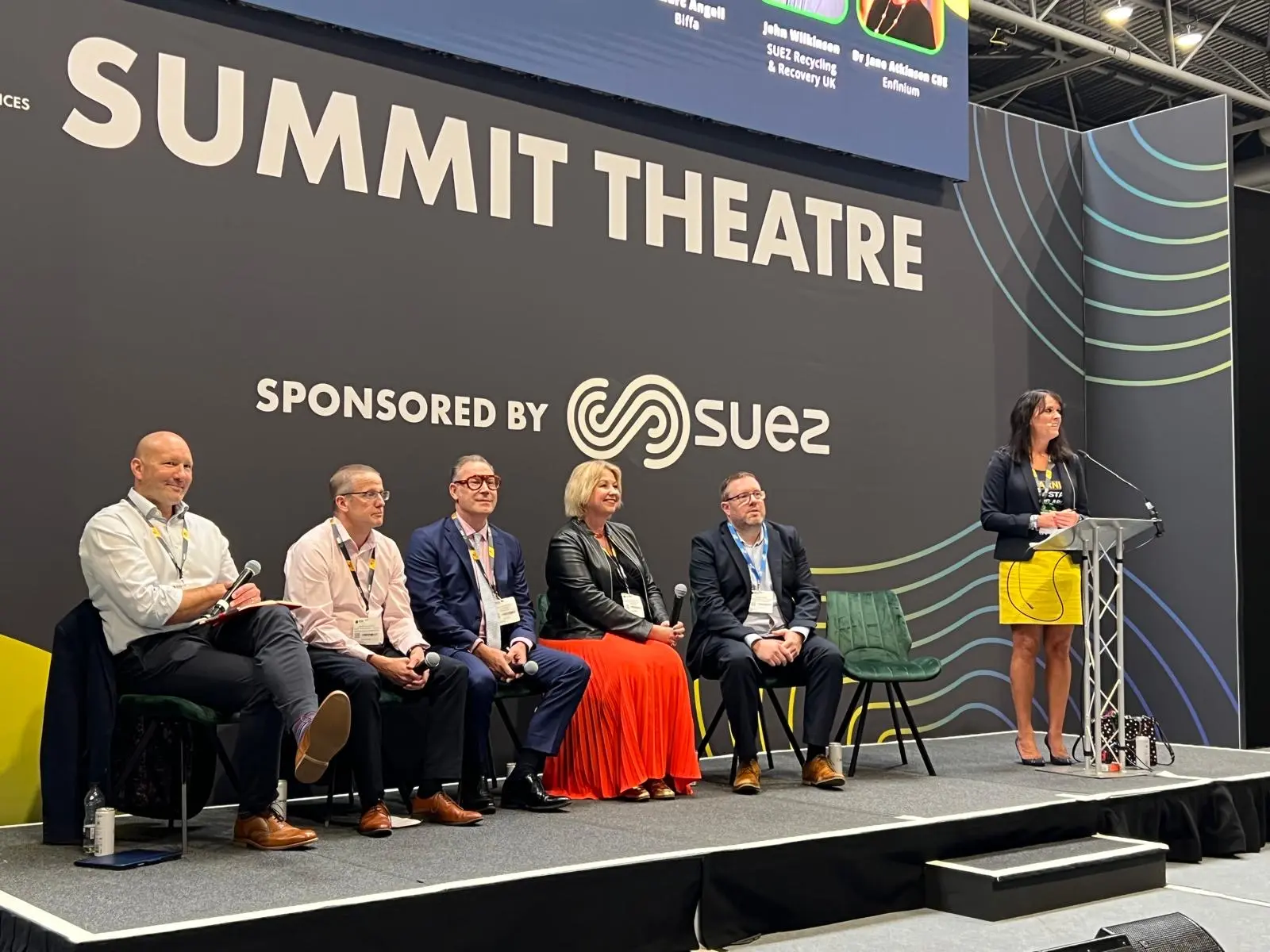Neil Grundon, Chairman of Grundon, was one of five top waste and recycling leaders taking part in a panel discussion at the recent Environmental Services & Solutions Expo, held at the NEC.
The keynote session, entitled Waste Not: Visionary Leadership for a Circular Future, was chaired by environmental criminal defence lawyer Dr Anna Willetts and covered wide-ranging topics including AI (Artificial Intelligence); how to attract new talent into the sector; and solutions for dealing with both waste fires and waste crime.
Declaring robotics to be his “favourite subject”, Neil said that Grundon had been making use of both robots and AI at its operations for several years – including its AI-driven driver training programme with Samsara – and has huge potential for the future. In particular, he said he saw a role for AI in projects such as deposit return schemes and the ability to harness data points at different stages of the waste operation.
AI and the use of social media was also highlighted as a potential way to help bring new generations into the waste and environmental sector. The panel discussed how a company having a digital presence on social media is deemed essential by those looking for new jobs, while a company’s website is only likely to hold their interest for around 25 seconds. The need for a strong wellbeing package was also a key ‘must have’, with one of the speakers saying candidates prioritised these three components “regardless of the sector” they were looking at.

In the current climate of working from home and/or hybrid working, a key point that Neil wanted to make was around the importance of colleagues spending time together. “One of the things people come to work for is to enjoy the company and camaraderie of others, together with the opportunity of being able to learn from each other – I don’t think that can be done working from home,” he said.
All five speakers had strong views on how to deal with waste fires caused by lithium batteries, vapes and gas canisters. Improving education and communication about correct disposal methods were common themes and Neil, who called for an outright ban on batteries in bins, said Grundon had spent around £1 million on fire protection detection and protection systems. Dr Willetts made the point that she had recently returned from the US where separate bins for batteries and vapes mean they have “no problem” with fires.
The topic of how to tackle waste crime, and in particular the ways it is being used as a cover for more serious crime and money laundering, saw Neil suggest that this was a matter for the police rather than local authorities.
“This is organised crime and I don’t think the message is getting through to the government about how much money is involved here.”
Neil Grundon
Chairman
He continued, “waste has to move and it is being driven around the country by someone with an HGV licence. These things have to be stopped on the road – if local authorities have to pick up the trailers from a layby they don’t know what is in it or if the vehicle is roadworthy – I think this should be a police issue more than anything else.”
